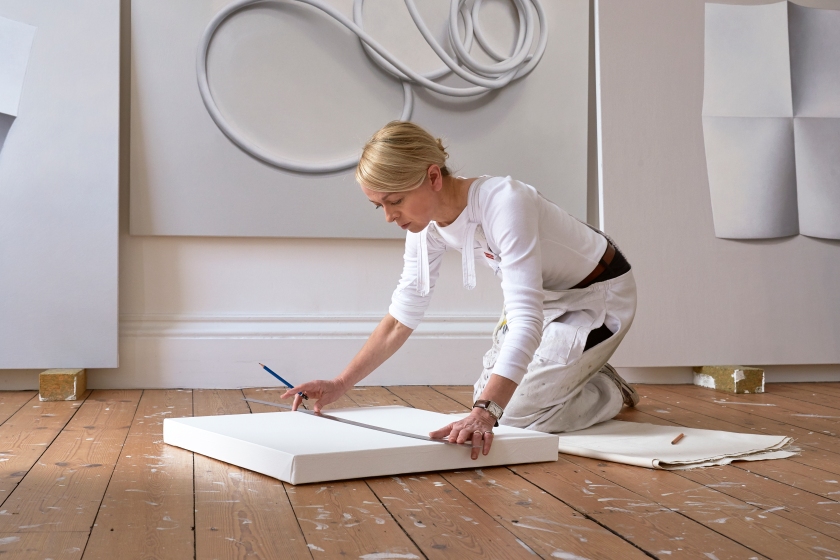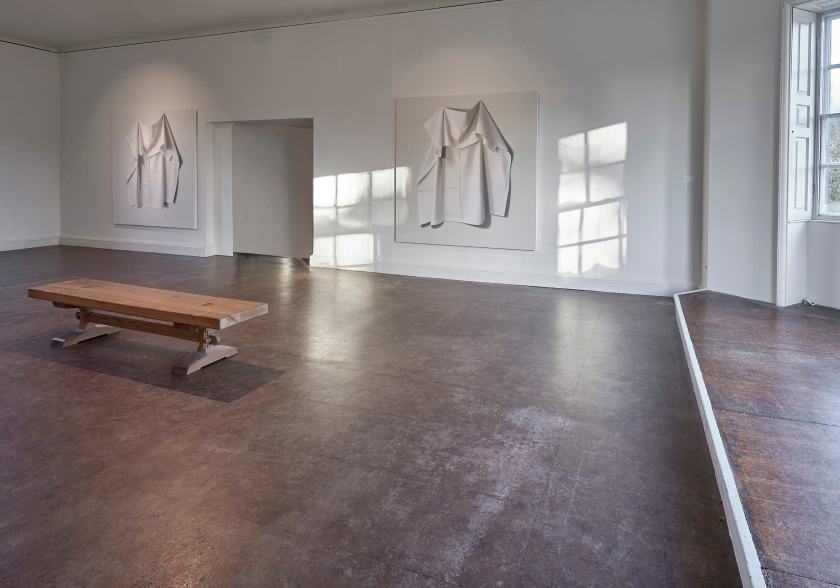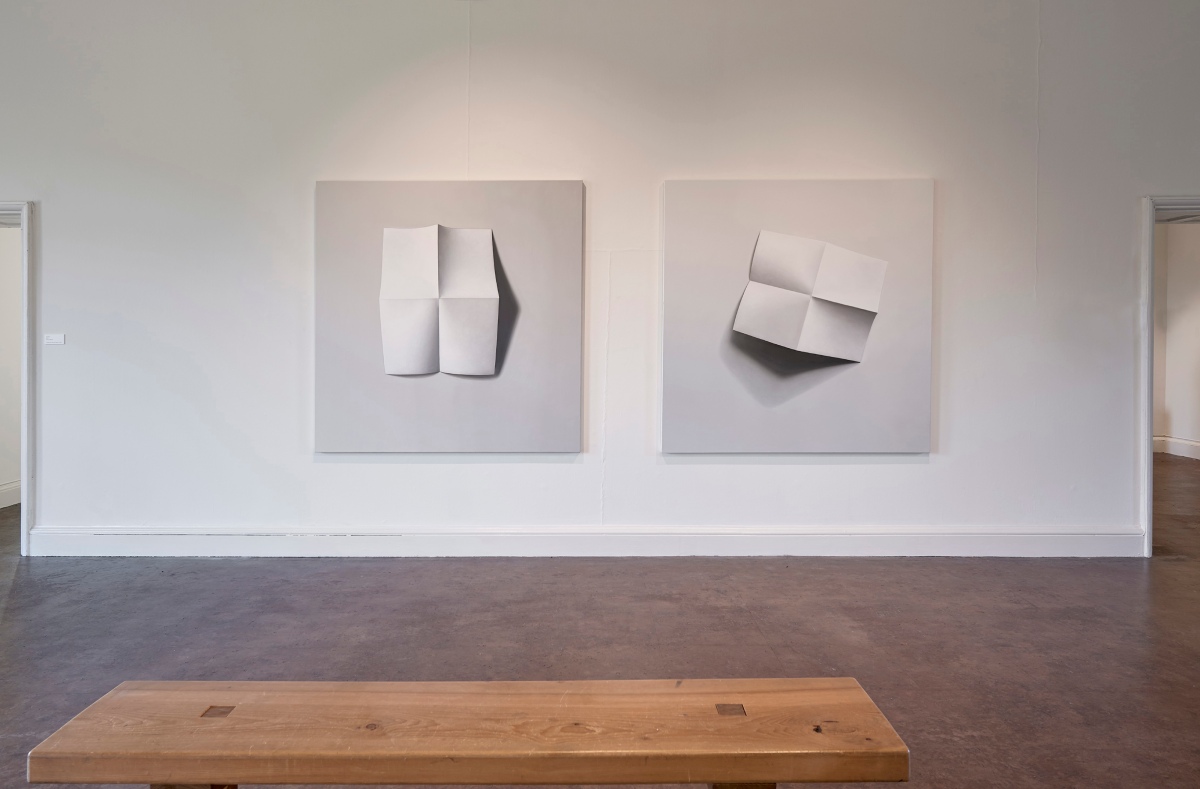Visitors to Abbot Hall Art Gallery have found spiritual and calming qualities in works by Alison Watt. Her painting exhibition A Shadow on The Blind has wowed art critics and visitors alike.
With one month to go before the exhibition closes, Alison took time out to speak about the show, the relationship she has with her paintings, the importance of light and shadow and how there is never enough time…
We have had some beautiful autumn and winter days when the light streams in from outside into your exhibition. Is there ever an ideal time to see A Shadow on The Blind?
Natural light is always changing and it is beautiful to witness those changes. This is one of the reasons why I wanted to uncover the windows at Abbot Hall. Depending on the light, the physicality of the paintings becomes more evident, they almost seem to vibrate. My studio in Edinburgh is flooded with light and this has an affect on my paintings as they appear to take on their own life as I work on them. Depending on the light in the room, their character can change and I love that; the fact that they can’t be controlled. I am fascinated by light and by how it is determined by darkness. A painting lives out its life in the light but without light, there is no shadow and without shadow there is no form. Light is part of a painting’s very substance.
Your paintings have been on show at Abbot Hall since October. Does your relationship with the works change over time?
One’s relationship with a painting is constantly changing. When you create a body of work in the studio, the paintings will form relationships with each other. It’s a strange experience to be surrounded by the physical manifestations of your ideas. Once they leave the studio, they begin to take on their own life. A life that is quite separate from you. There is a sadness in that because part of you exists within the paintings, so you lose something of yourself when they go. I always feel bereft when my paintings leave the studio. But then the idea that someone, often someone you have never met, might engage with something you have made is an extraordinary thing. I am always amazed by that.
Have you had any interaction with visitors on gallery, what reactions have you had to the works?
I have visited Abbot Hall several times since my work was installed and each time I’ve been approached by visitors to the exhibition. The wonderful thing about painting is that every painting has a different meaning to the person who looks at it. I think we all have something within us – an urge to search for recognition within art and then follow that up with our own interpretation. It’s part of the human condition I think. I’ve had some fascinating conversations. Conversations which start off being about my paintings, but become conversations about us. I think we love looking at paintings because we love looking at ourselves.

One visitor wrote that the paintings have a ‘calming, spiritual quality’. Do you feel that way when you paint them?
Making a painting has both conscious and unconscious elements to it. You become lost in the process itself, with your conscious thinking surrounding that. You often make a painting in order to understand why you wanted to make it. I can look at a painting I made 30-years-ago and still wonder about it. Making (and looking at) a painting is like having a conversation. It’s something that passes back and forth. It doesn’t settle. My paintings come from inside. Part of me doesn’t want to describe that feeling, and part of me doesn’t know how to. I feel very strongly that painting is unique as a medium. It appeals directly to the senses, possessing an irresistible quality that can’t be replicated by any other means. And that is what gives it its power.
Do you get ever feel sad towards the end of a show. Or is it on to the next exhibition…
Yes I do feel sad because a body of work encapsulates a particular time. I had a retrospective a few years ago. I saw paintings that I hadn’t seen for decades and the experience was not dissimilar to listening to a piece of music you haven’t heard for a long time: you are taken back to a particular time and a particular place and you remember how you felt. Increasingly, as I get older, I feel there is never enough time- there’s always a sense of urgency about making work. I’m always pushing on to the next thing. I feel I am always seeking something that is just out of my reach. That is the driver, to make better work.
Alison Watt: A Shadow on the Blind is on at Abbot Hall Art Gallery until 2 February 2019.



